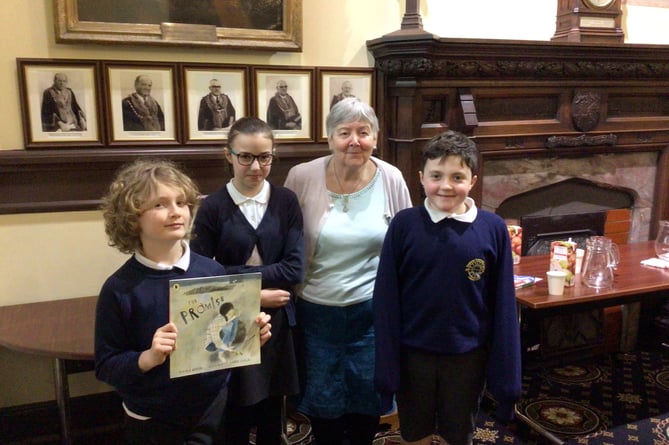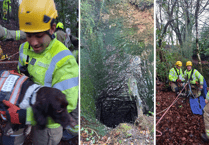Young people in Launceston have been putting their names in the hat to become next Prime Minister following a meeting of the town’s Youth Council.
Students from four schools based within the town came together this week to learn all about local democracy and work with Launceston Town Council to pitch ideas for funding for their respective schools.
Town councillor, Margaret Young led sessions at the Guildhall.
Speaking to the Post, Cllr Young explained: “The Youth Council is part of Launceston Town Council and is awarded a yearly grant to be used for the young people of the town.
“Projects vary yearly and have included paying for the hire of the Town Hall for the Guides, the rugby colts and theatre events to help raise funds.
“Beekeeping equipment for St Catherine’s and a circular seat for St Stephen’s school library have been funded and many more requests.”
This year’s council has taken a new approach, getting students to pitch potential projects and plans to councillors as though they were on Dragon’s Den.
Invited to the occasion, students would present a project of their choice with £400 to fund it.
Cllr Young continued: “Lunch was devoured first and then two or three representatives from each school in turn presented their ideas.
“Everyone listened carefully and decided whether the project was worthy of funding. Raised hands and applause were received for each.”
During the presentations, each school was given the opportunity to express what funding could be used for within their schools.
Drawn first were St Catherine’s. During their speech, the representatives expressed a need for playground equipment, including skipping ropes, hula hoops, footballs and other games.
Up next were St. Stephen’s, who asked for garden equipment and plants to enhance their outside area. They also wanted to make their chicken house a better home for their hens.
St Joseph’s were next to step up to the podium. Speakers explained their need for planters to grow vegetables in their food technology room. On top of this, five food waste bins were suggested to help with composting.
Finally, Windmill Hill Academy came with a model to illustrate their wish list. Their most-needed item is a composter.
Following some presentations which would rival even the best politicians and entrepreneur’s, all schools were rewarded with their £400.
The condition of the funding was that all schools return on March 21 with evidence of progress and photographs to present to councillors and fellow schools.




